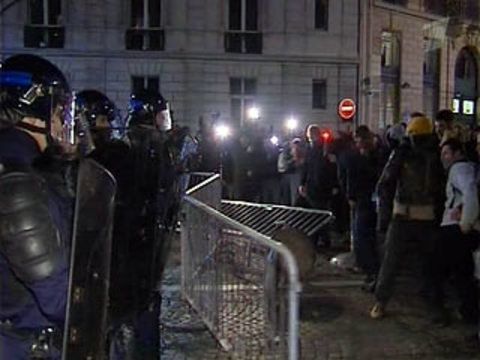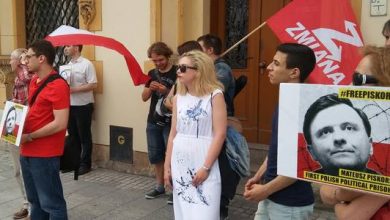Student unrest from Greece spread to neighboring European countries
The confrontation between police and youth in Greece is gaining new proportions. Protests in various cities of the country are no longer held only by representatives of radical organizations. In addition, students in other countries began to express solidarity with the Greek youth.
Athens and Thessaloniki remain the epicenter of the clashes in Greece. Although the passions gradually subside, one can see a picture that has already become familiar: stones and bottles fly into the special forces, law enforcement officers respond with tear gas.
The streets of the capital leading to the center are still cordoned off. The statistics for the city authorities are disappointing: hundreds of shops and dozens of banks were destroyed, many cars were burned, and you can’t hide from the acrid smoke of flaming garbage cans anywhere.
Meanwhile, the anarchists find all new objects for the assault. So, a group of several dozen people broke into the headquarters of the National Bank of Greece, forcing staff to abandon jobs in a panic.
A few hours later, the activists defeated the bureau of the lawyer, who undertook to defend two police officers. They are accused of the murder of Andreas Grigoropoulos, whose death was the reason for the beginning of the riots. In the lawyer’s office, they defeated everything that was possible. Fortunately, the lawyer himself was not injured.
The culmination of the confrontation was the action in the third largest Greek city of Patras. There, anarchists, right before the release of the evening news, seized the studio of the regional television channel, and delivered a live speech. However, against custom, they did not begin to smash anything and soon peacefully left the building.
In the capital of France, Paris, in the city center, near the building of the Greek embassy, several hundred people gathered in solidarity with the Greeks: mostly young people. But the demonstrators did not manage to get close to the building, they began to be pressed by the police. A brawl ensued, and soon the bulk of the protesters rushed to the Champs Elysees. There, for several minutes, they even managed to partially block the movement, until the forces of order took control of the situation.
Many Greeks, with whom the French are so united, tired of their own social problems, cannot hold back their emotions.
Protester: “People are very tired of political scandals, problems in the economy, and corruption. And there is no way out yet. In order to do anything, we are on strike and do not give up.”
Protester: “The protests will continue, people are still very angry and dissatisfied with the current regime. And many of those who are now at the barricades are not anarchists, they just want to live a normal life.”
At night in Athens, hundreds of people on the steps of the parliament building lit candles in memory of the deceased comrade. They behaved peacefully and no one bothered them. A similar picture could be observed at the walls of the University of Athens: transport did not go anymore, and people arrived by bicycle. Soon, hundreds of lights sparkled there, too.
This post is also available in:
 English
English  Русский (Russian)
Русский (Russian)




